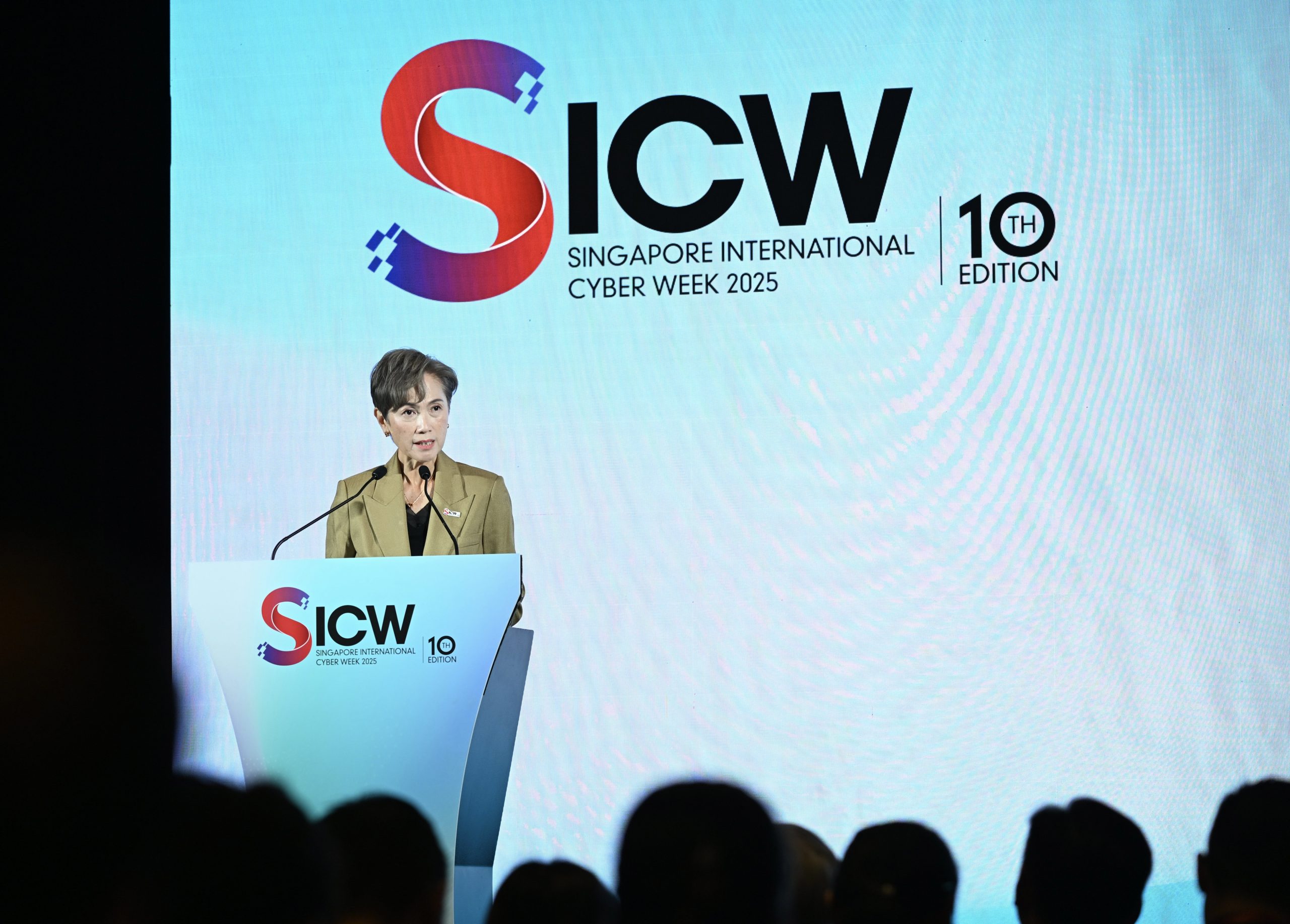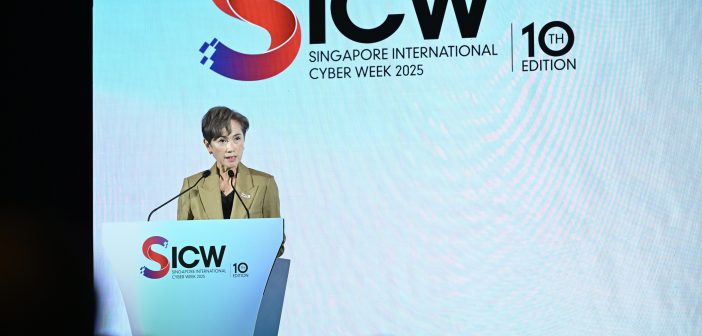
Singapore International Cyber Week (SICW) 2025 opened with a wave of major announcements from government agencies and industry leaders, underscoring the nation’s central role in shaping a secure, resilient, and collaborative digital future for the region.
Hosted by the Cyber Security Agency of Singapore (CSA), this year’s SICW — held from 20 to 24 October — brought together global partners across government, industry, and academia to tackle emerging cyber threats and opportunities posed by Artificial Intelligence, blockchain, and quantum technologies.
Strengthening Global Cyber Partnerships
In a key highlight, CSA and the United Nations Office for Disarmament Affairs (UNODA) announced the extension of the UN-Singapore Cyber Programme (UNSCP) for another three years (2026–2028). The initiative, which provides training and capacity-building for UN Member States, aims to equip nations with the tools and frameworks needed to strengthen cybersecurity governance and resilience worldwide.
Singapore also deepened international cooperation through a new Memorandum of Understanding (MoU) with the United Kingdom’s Department for Science, Innovation and Technology (DSIT). The agreement will enable mutual recognition of consumer Internet of Things (IoT) cybersecurity regimes, allowing smart products with Singapore’s Cybersecurity Labelling Scheme (CLS) mark to be recognised as compliant under the UK’s Product Security and Telecommunications Infrastructure (PSTI) Act.
In another show of global coordination, the Global Cybersecurity Labelling Initiative (GCLI) — a multilateral coalition led by Singapore and like-minded nations — issued a Joint Statement reaffirming its commitment to harmonising security standards for connected devices, promoting trust and innovation in the global digital ecosystem.
Regional Cooperation in Action
Marking its 20th edition, the ASEAN CERT Incident Drill (ACID) convened Computer Emergency Response Teams (CERTs) from all 10 ASEAN member states and key dialogue partners for the first time in Singapore. The two-day exercise tested regional coordination and incident response capabilities to strengthen cross-border cybersecurity readiness.
Ir. Dr. Megat Zuhairy Megat Tajuddin, Chief Executive of Malaysia’s National Cyber Security Agency and Overall Coordinator of the ASEAN Regional CERT Task Force, highlighted the importance of regional trust and cooperation in addressing the increasingly complex cyber threat landscape.
Building Cyber Resilience for Businesses
The Singapore Business Federation (SBF) launched the Cyber Resilience Centre (CRC) to help local enterprises — particularly small and medium-sized businesses — bolster their cybersecurity defences. Developed in partnership with the Singapore Chinese Chamber of Commerce & Industry (SCCCI) and SGTech, and supported by CSA, the centre will offer a cyber helpline, diagnostic clinics, and training programmes to support incident response and build digital confidence across the business community.
Complementing this, TRM Labs announced a partnership with CSA to advance AI-powered blockchain intelligence. The collaboration will focus on tracing ransomware payments and detecting illicit blockchain activities, representing Singapore’s continued investment in the security of the digital finance ecosystem.
AI, Quantum and Emerging Tech Security
CSA unveiled several new initiatives targeting the next wave of cybersecurity challenges. These include the release of “Securing Agentic AI” — an Addendum to its Guidelines on Securing Artificial Intelligence Systems — offering practical recommendations for securing self-governing AI agents that increasingly underpin critical digital systems.
In a related development, Amazon Web Services (AWS) signed a Memorandum of Cooperation with CSA to enhance national cyber defence. The collaboration will enable joint operations, information sharing, and technical exercises aimed at protecting systems of national importance.
CSA also launched a Quantum-Safe Handbook and Quantum Readiness Index (QRI), unveiled by Minister for Digital Development and Information, Mrs Josephine Teo. The resources provide guidance for organisations preparing for the era of quantum computing, which is expected to disrupt traditional encryption methods.
Technology leaders are also stepping up. Google announced a suite of AI-driven initiatives to strengthen Singapore’s cyber defences, including renewed collaboration with CSA, new AI-powered security capabilities for the public sector, and training programmes to help businesses and individuals mitigate digital threats.
Advancing Trust in the Digital Ecosystem
In efforts to promote transparency and safety in the app economy, CSA introduced the Safe App Portal Pilot, an online platform offering users clear, data-driven safety and security insights on mobile applications.
This was accompanied by the signing of an MoU between CSA and the App Defense Alliance (ADA) — a consortium led by Google, Meta, and Microsoft — to enhance mobile app security through greater industry collaboration.
A Forward-Looking Cyber Future
The announcements at SICW 2025 reflect Singapore’s commitment to leading by example in the global cybersecurity arena — fostering trust, innovation, and collaboration.
From quantum-safe frameworks and AI security guidelines to cross-border partnerships and SME support, this year’s initiatives paint a comprehensive vision for how nations and industries can jointly strengthen the digital ecosystem against evolving threats.
As the event continues through the week, Singapore’s message remains clear: cybersecurity is not only a national priority but a shared international responsibility.
Image: Minister Josephine Teo at HLP (AI) on 22 Oct 2025. Credit: Edelman





